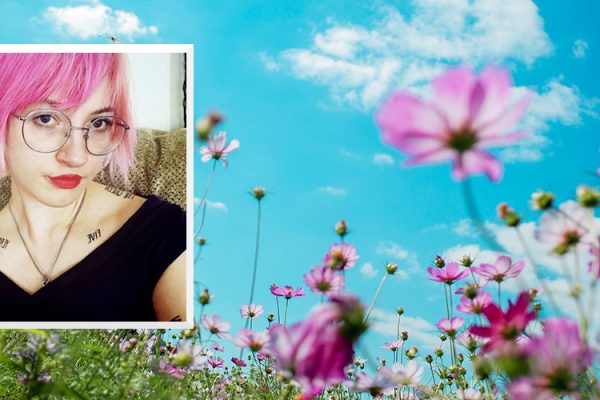Here’s two things. First, modern-day witches, pagans and spiritual people have a lot of imagery, information and tools to choose from. Second, not being an asshole is always a great goal.
Within the context of many choices and “decent human” goals, why not make certain your practices are sustainable and not culturally insensitive?
The bigger witchy picture
A few months ago, “The Witch Wave” podcast, a witch-centric program hosted by Pam Grossman, discussed cultural appropriation in modern-day witchcraft. Rebecca Artemisa, a bruja, artist and zine maker, and Grossman, had an amazing conversation about “appreciation vs. appropriation.”
Their discussion (which you can hear via the May 23, 2018 episode) — along with other pieces I’ve recently seen concerning sustainable witch practices — influenced me to review my witchy practices. The following is what I’ve learned so far.
Start local, then go global
First, try to buy your tools from local sources. I’m the first to admit that I have not always done this. I too have fallen victim to the alluring, quick-to-deliver siren song of Amazon. However, when able, I try to first source items from my local witch shop.
Local shops tend to carry handmade spells and local wares. Also, shop owners tend to be full of information.
If you can’t shop local, consider trying Etsy or search online for shops that keep sustainability and inclusivity in mind. The following are a few places to consider.
For Tarot
Although these sites don’t sell the decks they recommend, they do direct readers to where the decks can be bought.
Asali Earthwork: This site is full of informative articles, and the site’s owner’s tarot review collection is full of interesting decks worth your hard-earned cash.
Little Red Tarot: Another site full of great information and on-point deck recommendations.
For Self-care
Witch Baby Soap makes products that are vegan and cruelty-free, as well as free of parabens, sulfates, phthalates, urea and formaldehyde. Many of the store’s soaps and products are also infused with spells. For example, the Hex Breaker Soap features:
- Lemon essential oil to help purify negativity.
- Lavender and clary sage to relax and uplift the spirit.
- Angelica and basil, which have hex breaking qualities. (Historically, these properties have been used in exorcisms.)
Mind your herbs
Through the years, many witches have used various herbs and essential oils to help their spells. I like getting my oils from local vendors, or from Aura Cacia and Now. I also try to grow my own herbs.
If you choose to source your herbs locally, via foraging, keep the following in mind.
The Herbal Academy recently published an informative piece concerning at-risk plants people should avoid harvesting this year. “At-risk plants are those that are either naturally rare in the environment or those that are becoming rare through human influence,” the Academy reported.
Some plants to avoid harvesting included Black Cohosh, Echinacea and Slippery Elm. There are more, many of which seem commonplace — thus, not necessarily “obvious” in terms of sustainability concerns.
They posed the following thoughtful query: “As herbalists, our work revolves around plants, so it makes sense that we would want to use plants in a wise manner—protecting and preserving them with their long-term viability in mind, not just for our sakes, but for the sake of the plant itself and the ecosystem which it inhabits. In order to do that, we must ask ourselves if we truly need the plant we’re considering using.”
Conscious crystals
If you’re interested in buying crystals that are sourced mindfully, consider shopping at Moonrise Crystals.
Julie, the purveyor of the shop, has a long history with sustainability and mindfulness. Moonrise Crystals, consequently, tries to trace the stones it sells and makes “business relationships with mines who conduct their operations with integrity and sensitivity.”
Stay intersectional
Finally, regularly visit the Witches Rise document, “Community Resources for Intersectional Witches.” It’s full of great places to shop for witch gear and articles concerning intersectional witchcraft.
Author Nicola Francesca and the page state:
Finding community in the non-digital world is difficult enough without the added layers of trust needed to feel welcome when you’re a witch at several social intersections…
We’re tired of never seeing or hearing in popular media from fat witches, black witches, disabled witches, poor witches, neurodivergent witches, and trans witches. We’re tired of seeing white witches downplay and benefit from cultural appropriation, or the popularized witch lifestyle ignoring witches at different socioeconomic levels to capitalize on this form of spirituality.
This page is an effort, albeit a small one, that we are crafting to address this.
The page includes recommendations for supplies and services, as well as links to useful blogs and musings on consumption and integration.
—
Abbie Stutzer is a writer and editor from Lawrence, Kansas. Find her on Twitter at @abbiestutzer and on Insta at @abbiestutzer. Email her at abbie@ynotcam.com.
Image via Koos Schwaneberg.










